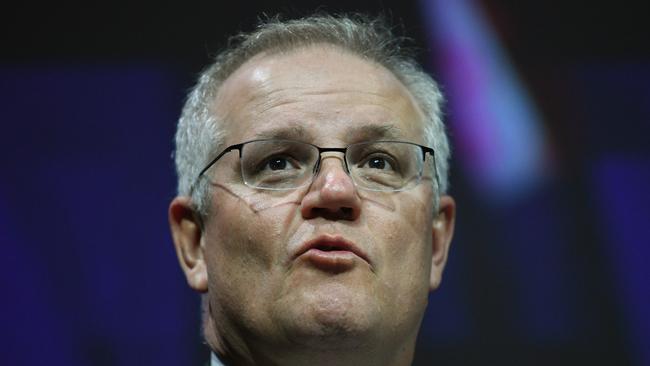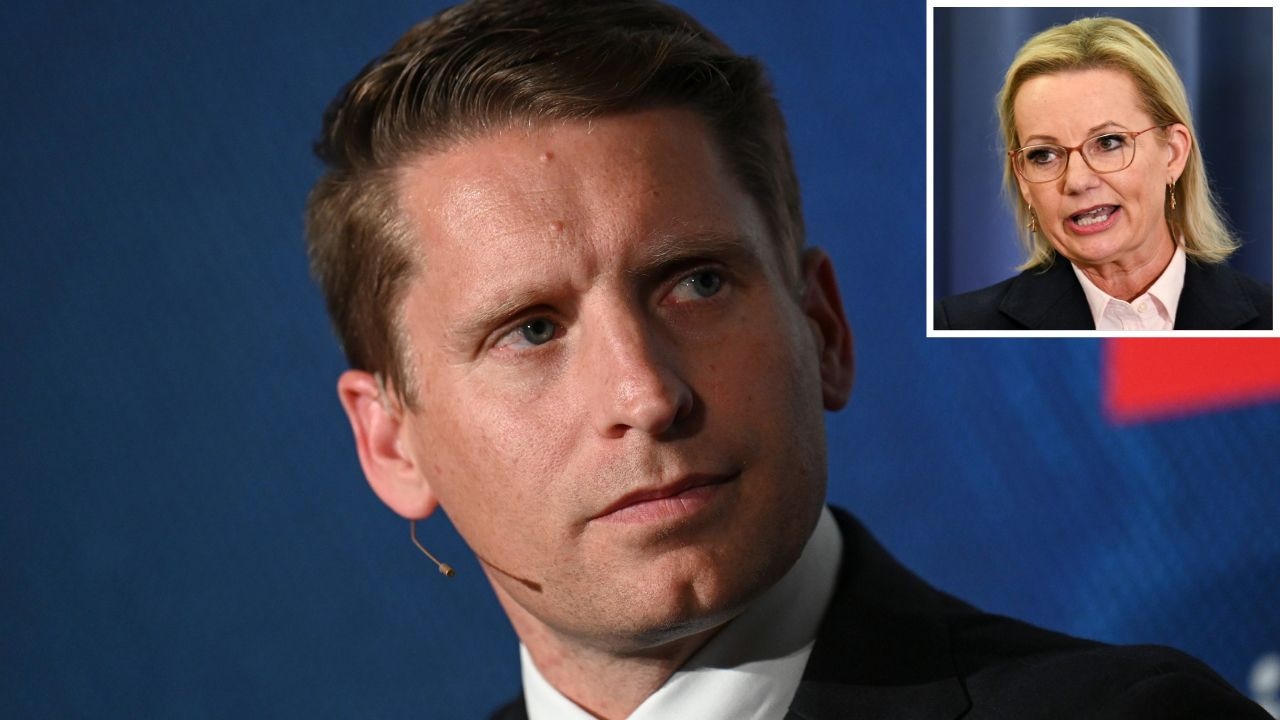Budget 2020: Scott Morrison’s $7bn digital fast-track push
Scott Morrison to spend $800m boosting government digital services and 5G rollout.

Scott Morrison will spend more than $7bn fast-tracking Australia’s digital economy, speeding up broadband and beefing up cyber security to streamline business operations and increase connectivity and economic output.
The Prime Minister on Tuesday will announce an $800m digital business plan, accelerating the rollout of 5G and boosting digital capacity across the agriculture, financial services, manufacturing, mining and logistics sectors.
The plan will work in tandem with the government’s $4.5bn NBN upgrade and $1.67bn cyber security strategy and prioritise jobs growth through modernising business operations, slashing red tape and improving private sector contact with government departments and agencies.
Keeping up with rapid changes in the digital landscape, enhanced by the COVID-19 pandemic, the government will move to change the Corporations Act allowing virtual meetings and execution of documents.
Almost $260m will be allocated in next Tuesday’s budget to expand the digital identity system, allowing more than 2.7 million Australian businesses and individuals faster access to 70 government services.
Australians will also be able to start up new businesses in 15 minutes instead of paperwork requiring days or weeks.
Josh Frydenberg said investment in the digital economy, including $419.9m to fully implement an upgrade of the government’s business register, was crucial in protecting the long-term future of employers and workers.
“The shift online has enabled many businesses to transform and sustain their operations during COVID-19. Our digital infrastructure package is estimated to increase Australia’s GDP by $6.4bn a year by 2024 and around $1.5bn of this additional economic activity is estimated to flow to regional Australia each year,” the Treasurer said.
“Australian industries and businesses are well placed to make the most of the opportunities offered by digital technologies but we need to take further steps to support small businesses adopt the digital capabilities to survive, thrive and grow.”
Mr Morrison said the digital business plan would remove “outdated regulatory barriers” and support the uptake of new technologies across the economy. “This year’s budget will support businesses to recover, build back and create more jobs as part of our economic recovery plan,” he said.
“Many businesses moved online quickly when the pandemic hit, undergoing a decade of change in months, finding new customers or new ways of doing things.”
Almost $25m will be made available to support the transition of small and medium-sized businesses into the digital economy, with a further $29.2m to boost early business access to 5G.
The Australian 5G Innovation Initiative will provide grants supporting the private sector to invest in 5G trials, with funding supporting commercial enterprises across the agriculture, mining and manufacturing sectors.
The ramped-up digital push comes as nine-in-10 Australian firms adopted new technologies during the pandemic to improve their business operations, allowing more than 3.2 million employees to keep working through COVID-19 social restrictions.
Businesses that introduced new workplace practices, including flexible working hours and working-from-home arrangements, recorded a three-fold increase in productivity.
Changes to the Corporations Act will let companies use emails to provide notice of AGMs, achieve a quorum with shareholders attending online, hold AGMs online and validly execute a document without company officers having to physically print and sign the same hard copy.
Ahead of the manufacturing strategy being released this week, opposition industry spokesman Brendan O’Connor on Monday said commitments from the government to date had been “heavy on rhetoric and light on substance”.
Subscribers can sign-up to receive budget newsletters at theaustralian.com.au/newsletters




To join the conversation, please log in. Don't have an account? Register
Join the conversation, you are commenting as Logout